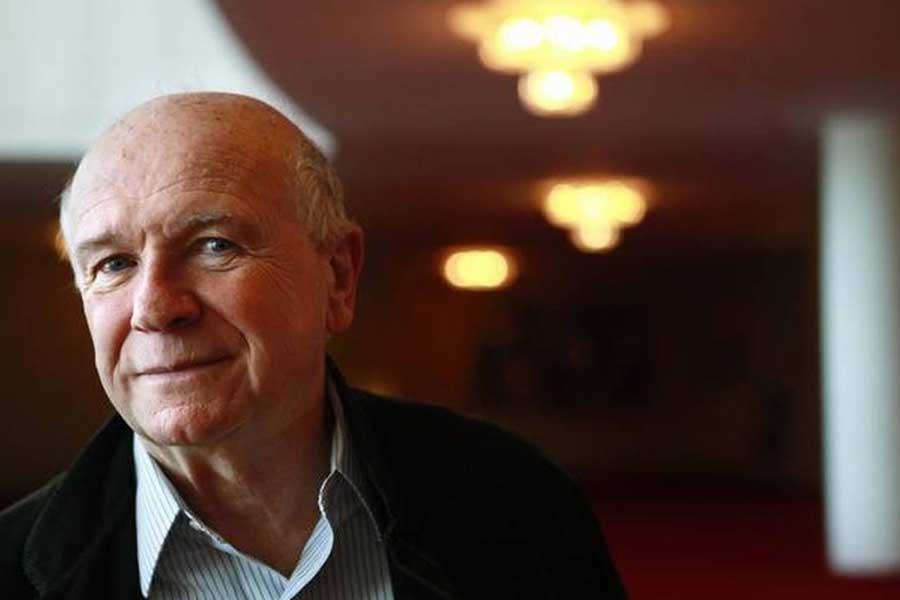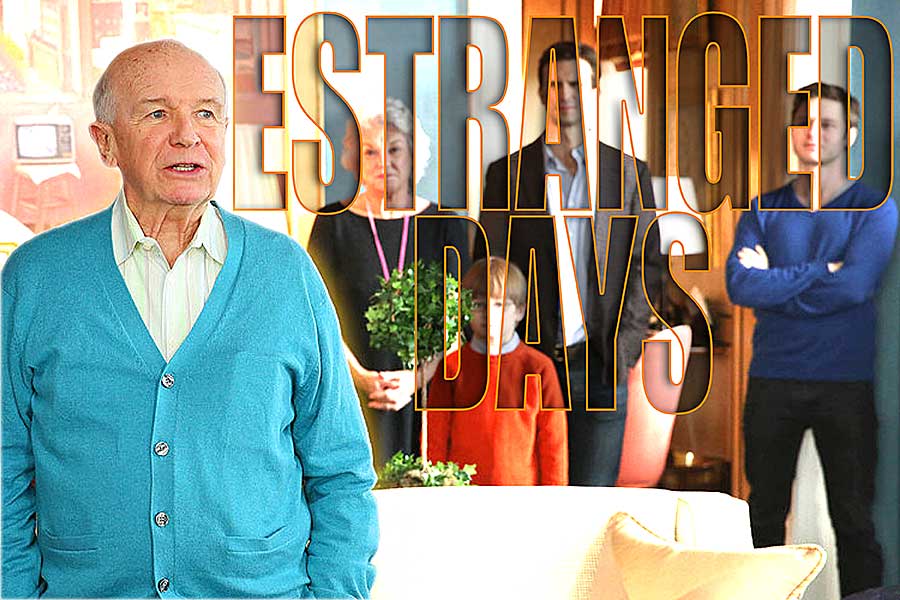Terrence McNally’s “Mothers and Sons” is coming to Suzanne Roberts Theatre through March 8, and the out playwright chatted with PGN about his expectations for the Tony Award-nominated play.
McNally has a lengthy list of accolades, including four Tony Awards for writing classic plays like “Love! Valour! Compassion!” and “Kiss of the Spider Woman.” His latest, “Mothers and Sons,” is the story of a woman, Katharine, who pays an unexpected visit to the apartment of her late son’s partner, Cal, who is now married to another man and has a young son. The reunion triggers issues of loss, anger and the truths of their shared past as they explore issues of family and forgiveness in a changing society.
Many critics have hailed “Mothers and Sons” as one of McNally’s best, but he said he doesn’t dwell much on those kinds of salutes.
“I never worry if a play of mine is one of the best or not,” McNally said. “Instead, I work as hard as I can on them, round up the best cast and director and stand at the back of the theater and hope I haven’t bored anyone to death. I have never gotten tired of watching ‘Mothers and Sons.’”
Wendy Goldberg, who is directing the production for the Philadelphia Theatre Company, said the play appealed to her because it shows how far society and the LGBT community have evolved in such a short period.
“The play looks at the revolutionary changes that have taken place in gay history through the lens of a family, and different generations,” Goldberg said. “I think the play is an important one as so much change has happened in even just the last five years in the gay community, after decades of inequality. I was excited to tackle the issues but, more importantly, was attracted to the emotional resonance the play has. My partner and I have a son and we too have to always protect our rights to be a family; the play is a reminder of what it means to be a family and how we have to love and accept people as they are.”
Added McNally: “I believe the play reflects the enormous changes in the gay and lesbian community — all for the better, I’m happy to say — since the disaster of AIDS and the subsequent emergence of a community of powerful, loving and progressive gay men and women. We have a place at the table we did not have before.”

PLAYWRIGHT TERRENCE MCNALLY
McNally said that, despite the progress society has made, HIV/AIDS still affects younger generations as much as it did older generations.
“AIDS affected every single American, whether they can admit that or not,” he said. “That is why the play resonates. AIDS is still very much with us. Not just as a virus but as a moral thermometer of where we are as a society.”
The heart of the conflict between Cal and Katharine in the play centers on the fact that Cal has a new partner while Katherine is still grieving the loss of her son, Andre.
“Cal has moved on,” McNally said. “He has fallen in love. They have gotten married. They have a son. Katharine is stuck in her grief and anger. Katharine is so alone in the world. When Cal goes, she will have no one. Since she will no doubt pre-decease him, she had better reach out to this last living link with Andre. When she is gone, she is gone forever. She is gone for good. That is a terrible realization. Gay men and women make their own families. People like Katharine have no family at all.”
“I think losing a child is something as a parent you can never recover from,” Goldberg added. “This is the space she is operating from; she is a woman in great pain and has had profound disappointment and loss in her life. As we strive as LGBT people to help the world understand our values and our perspective, we cannot forget, nor should we dismiss, others that don’t as easily understand our perspective. I do think she begins to move toward an understanding and that is what we want, I think, as a culture: to help others understand and have empathy and compassion for one another. As we see in the play, and as we see in life, it isn’t an easy journey. My hope in this production is to help audiences understand where Katharine is coming from — not to say that they will necessarily gravitate toward her or Cal — but I am always seeking for us to have some empathy for characters on stage, and I am working on that in this production. My hope is that the audience will have empathy for both characters; the theater helps to teach empathy I think.”
McNally said the characters in “Mothers and Sons” represent a pastiche of people he’s known who have had similar experiences, as well as wholly original characters.
“As in most of my plays, the events and characters in ‘Mothers and Sons’ are an amalgam of people I have known, people I have observed second-hand and people I have imagined,” he said. “Most of my plays are emotionally autobiographical, while very, very few incidents or characters are from my ‘real’ life. Writing is first and foremost an act of the imagination. Just to put down on paper what ‘really happened’ does not usually make good literature. A writer has to be of the world 100-percent, participating in its day-to-day events, and then go to a quiet place to think about what he has seen and learned and what his thoughts and emotions about them are. How I felt when I lost a partner to AIDS is, of course, part of the fabric of the play. How could it not be? But that partner was nothing like Andre.”
McNally said Cal having a family of his own when Katharine comes back into his life bears some weight on how he interacts with her.
“Cal being a father has made him realize how important it is that parents support and protect their children. The responsibility of parenthood is enormous. [Cal’s son] Bud is not a narcissistic reflection of who Cal wants him to be. [Cal’s husband] Will gets that completely; Cal is going to have to work on it a bit. Katharine never got that part of being a parent. She thought it was all about her,” McNally said. “This is not to demonize her. She is not a bad person. She is wrong. She is on the wrong side of history, like millions and millions of others. I think Katharine is a tragic figure. I am moved by her inability to save herself. I can identify with her on some very deep levels. She does reach out at the end to Cal. There is still a place of all-encompassing humanity in her.”
Philadelphia Theatre Company presents “Mothers and Sons” Feb. 6-March 18 at Suzanne Roberts Theatre, 480 S. Broad St. For more information or tickets, call 215-985-0420.

